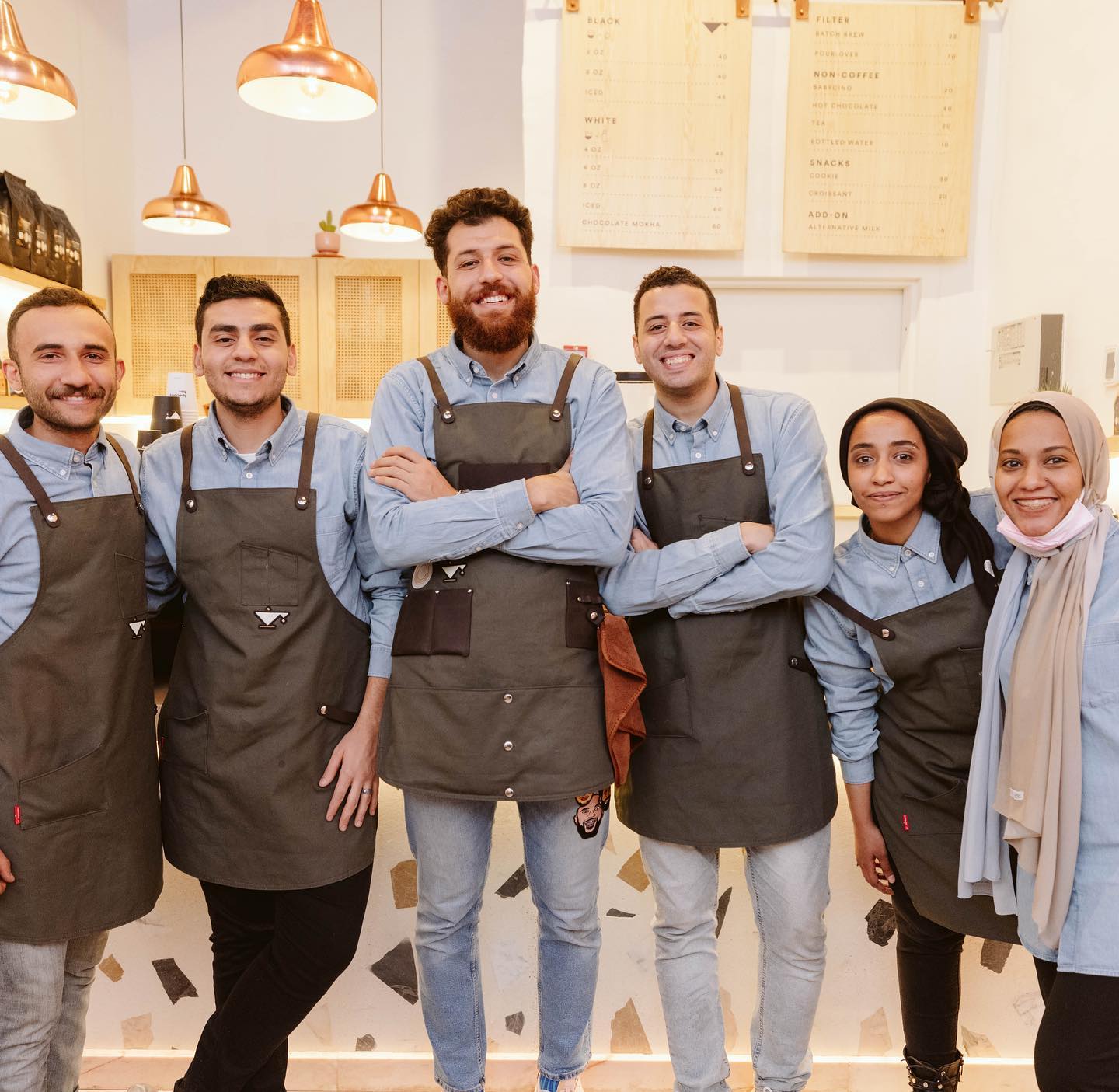
In a corner of Arkan Plaza in El Sheikh Zayed City, on the westside of Greater Cairo, sits a haven for lovers of good quality coffee.
Nestled in between a number of other premises of locally-owned small businesses, Specialty Būn is a tiny place, but bursting with character. The coffee bar – topped with a glossy black machine, a two-foot-high grinder, and a subtle brownish-gold Marshall speaker – is the main eye-catcher, but not the only one.
Tabletops inspired by crafts from Sinai, chairs inspired by ancient Egyptian relics, and a shelf covered with pictures of the various café-goers that had helped themselves to the vintage polaroid camera — every element of the decor seems deliberate.
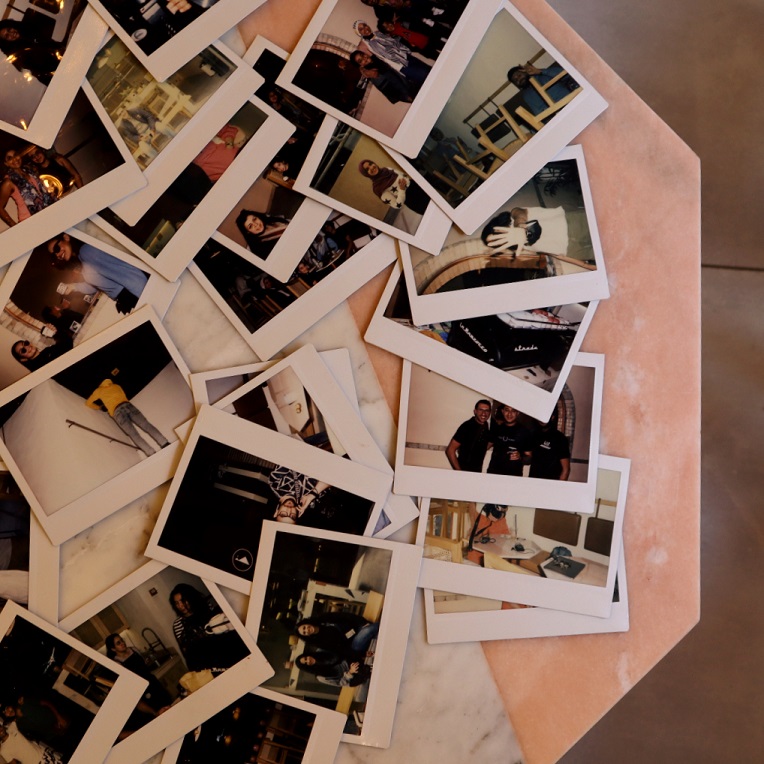
An hour spent with Omar Nazmi, the younger of the two brothers who founded and own Specialty Būn, reveals that not only the decor, but everything about and around the place is deliberate: the remote travels to source their specialty coffee, Cairo Coffee Collective, their own local roastery, the elaborate training of the baristas, all the way to the cups they serve the coffee in.
Born in Egypt, but raised in Canada, the Nazmi brothers found in coffee something to help them answer questions about their own identity. The drink’s roots in the Arab world showed them from a young age that they have a claim to the art.
After immersing themselves in coffee for years, the Nazmis returned to Egypt and decided to leave their jobs in the oil and gas industry when they realised that the best coffee they could find was the ones they brewed themselves.
“We thought, ‘there’s got to be other people that want good coffee,’” says the younger Nazmi. “So we decided to open a coffee roasting business, because that would guarantee supply.”
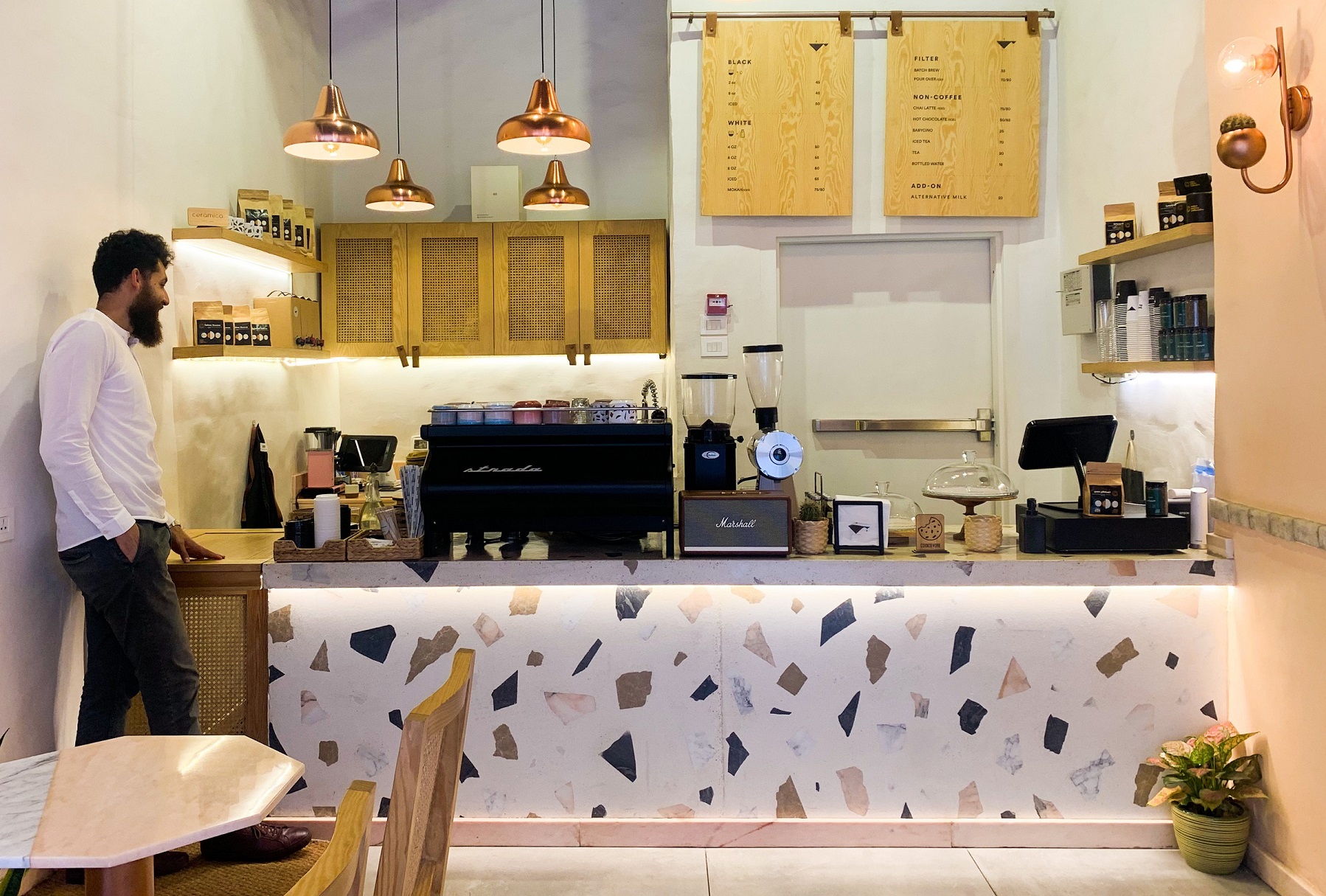
And so, Cairo Coffee Collective roasting business and Specialty Būn were born. Despite the Nazmis’ international upbringing, the Egyptian character became essential to the identity of Specialty Būn. From bricks from Siwa sourced by Nazmi the younger, to an entrance inspired by legendary Egyptian architect Hassan Fathi, and terrazzo marble reminiscent of the Maamoura boardwalk. The logo itself can be interpreted as a cup of coffee, a coffee filter, Egypt’s iconic pyramids, or the word بُن (būn, or ground coffee).
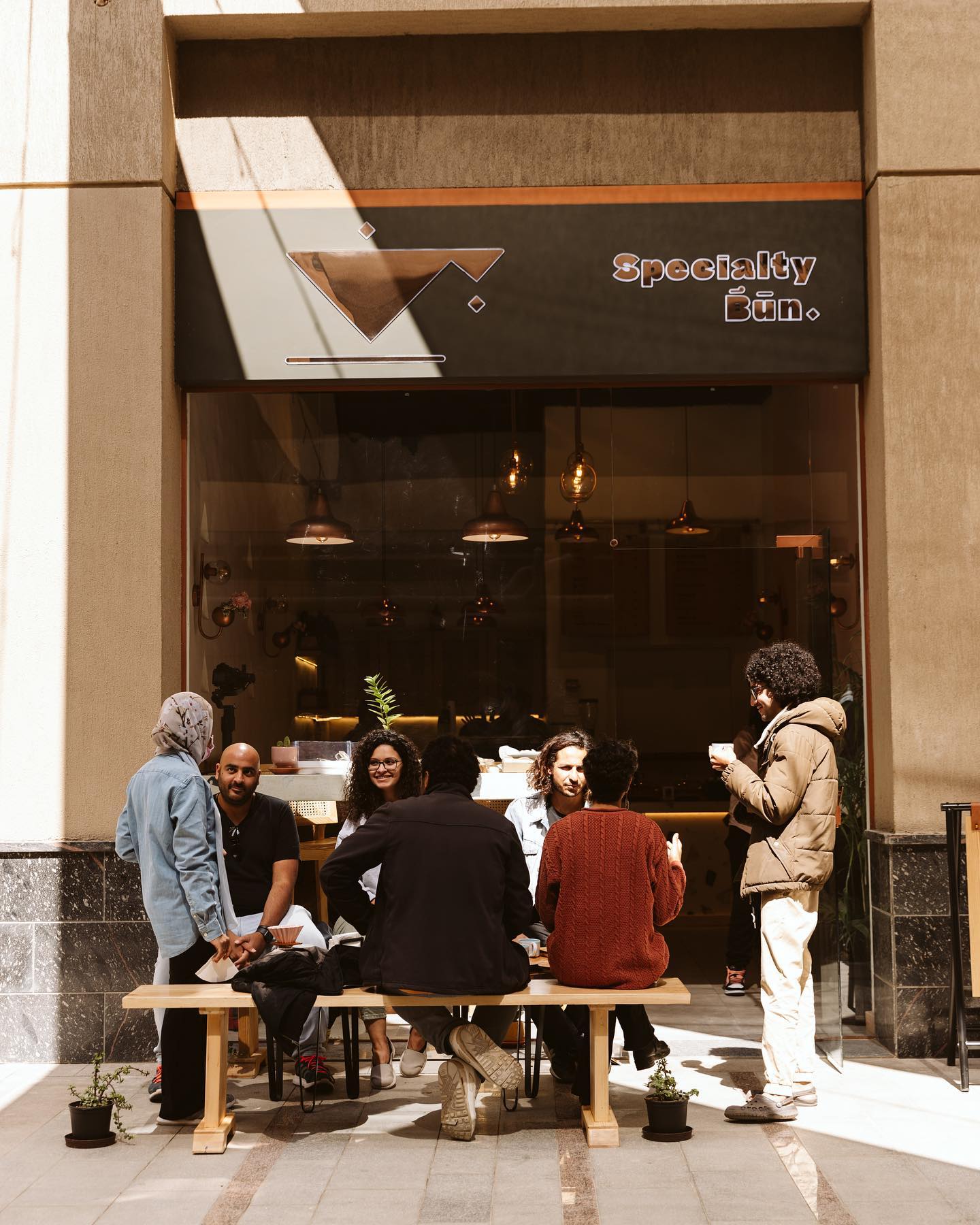
Coffee is community
The first tell-tale sign of Nazmi’s guiding philosophy is an item scarcely found in Egyptian eateries or coffee shops: a community table. Not only does he hope that this piece of furniture encourages the patrons of Specialty Būn to share a space and get acquainted, but the table itself is an extension of the Nazmis’ community growing up: it was built by the family carpenter.
At that community table, as one of the coffee shop’s baristas serves two cups of black filtered coffee sourced from Sidama, Ethiopia by the brothers Nazmi themselves, Nazmi explains how essential a cornerstone the concept of community has been to establishing the shop.
To Nazmi, community has many layers, all of which have an impact on the success of the business. Coffee itself, this unassuming quotidian caffeinated beverage, is almost synonymous with company and community. It is at the centre of social breaks punctuating workdays, of reunions with friends, of first dates, and so much more.
But the community aspect of coffee as a product starts long before a barista hands a customer their cup of joe.
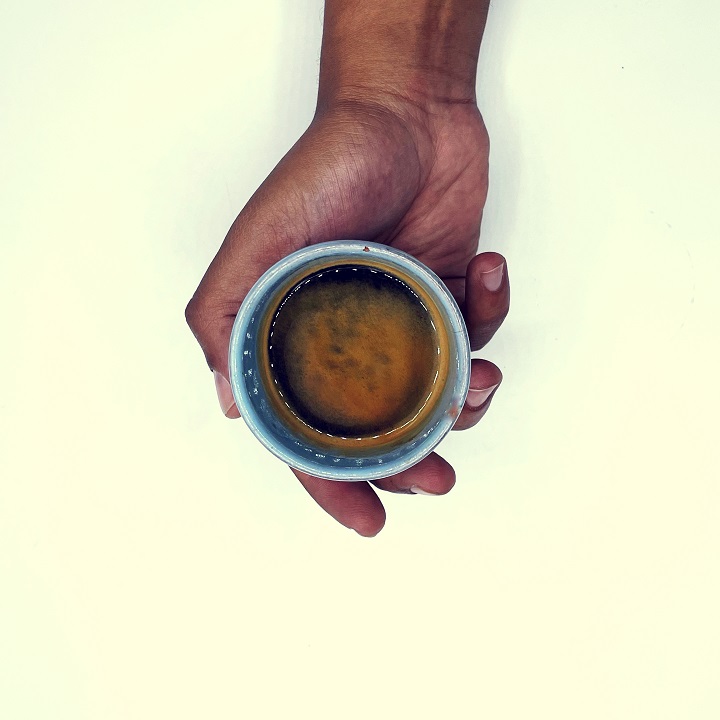
“Part of our mission is to build awareness around our product. People cannot respect or love what they don’t understand,” says Nazmi.
“All too often I find coffee to be considered a caffeine fix, a commodity. People will say ‘I need my coffee to start my day. I don’t care what it is, I don’t care where it comes from.’ But what goes into that cup of coffee? Who is behind this cup of coffee? Where does it come from? These are questions I find most people don’t ask unless they are prompted.”
Nazmi highlights that with its vast supply chain, the coffee industry involves the love, labour, and time of an enormous number of people.
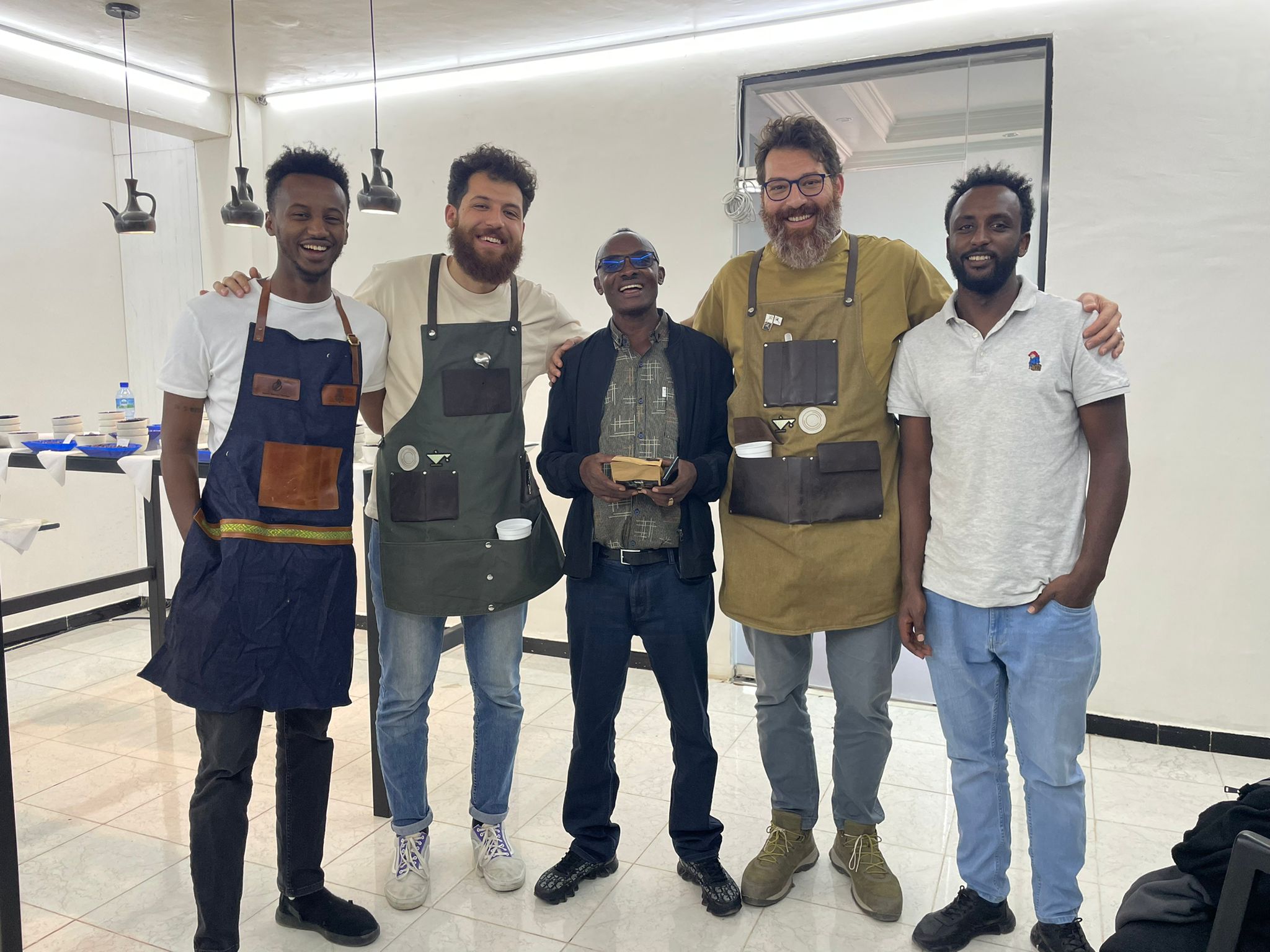
“If you take this cup of coffee here: the coffee was roasted in Rehab by my older brother. Before that, it came from a burlap sack that was packaged and sealed. Someone carried it to a temperature controlled facility. Rewind a little and it came from a container. That container came on a ship from Djibouti. The container came to Djibouti from Addis Ababa. Before that, it came from a processing station in Sidama. And how does the processing station select all the different variants of coffee? From different farms within the region. And those different farms have different farmers, and those different farmers have different families. And all of this is behind this one 250 millilitre decanter.”
Nazmi believes that if people only took the time to think about this story, they would see something extraordinary in their daily cup of coffee.
The extraordinary in the ordinary
The “pursuit of the perfect cup”, as Nazmi describes it, is one of the things that can make a coffee extraordinary. It is a balance of the aesthetic element of the experience as well as the technical precision of, for example, pulling the perfect espresso shot.
Every single barista at Specialty Būn has caught the contagious bug of seeing the extraordinary in a cup of ordinary coffee, and is privy to the secrets of this pursuit.
“When we opened this business, we decided that we would employ people who had never worked in coffee before. We wanted people with a blank slate, with no bad habits to unlearn,” Nazmi says.
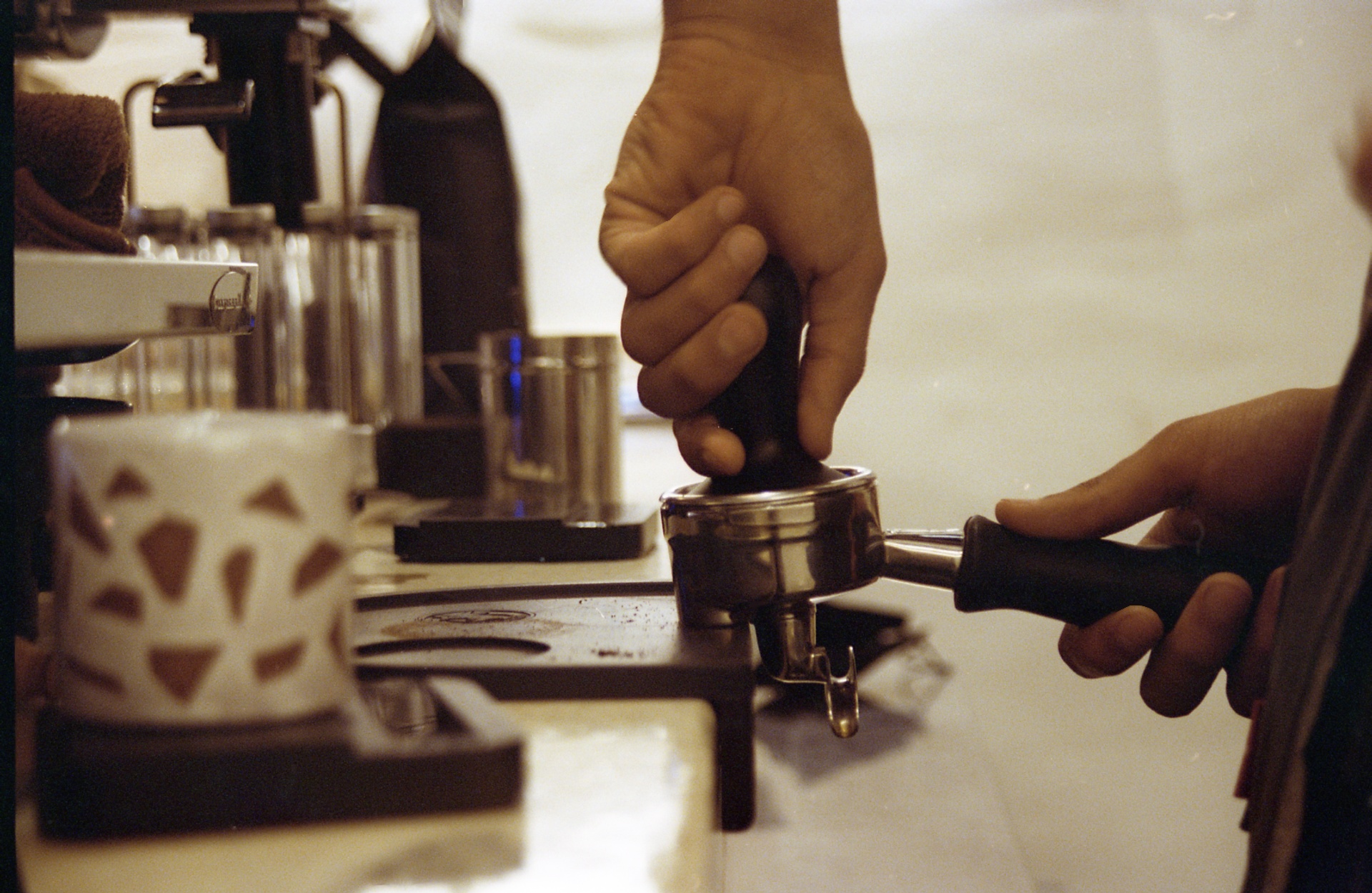
Given the team’s lack of previous experience in coffee, the approach they took to bringing them closer to the beverage was more accessible, more personal, and less by the book with regards to the concepts and terms usually associated with specialty coffee.
“You tell me, ‘Omar, this isn’t rocket science. They’re not trying to get a bachelor’s degree in preparing coffee,’ and I don’t disagree, but what we’re looking to build is a philosophy and an attitude of respect and that can only come with experience,” he says as a cup of flat white made with Sultan Hassan, the sweet, strong house blend created to cater to local palates, is laid on the table.
The coffee is served in a white cup with tan triangles adorning it – the work of Egyptian business Ceramica. Carefully designed by the Nazmis and Ceramica owner Menna Sultan, these cups capture the identity of the coffee shop, as well as having the perfect size and volume to ensure a perfect coffee.
Breaking into the Egyptian market
Ceramica is not the only local business the Nazmi brothers have partnered up with. Cairo Coffee Collective first broke into the industry by offering a subscription program directly to the consumer with a dedicated in-house team of delivery drivers, but a roastery’s main source of revenue is business to business.
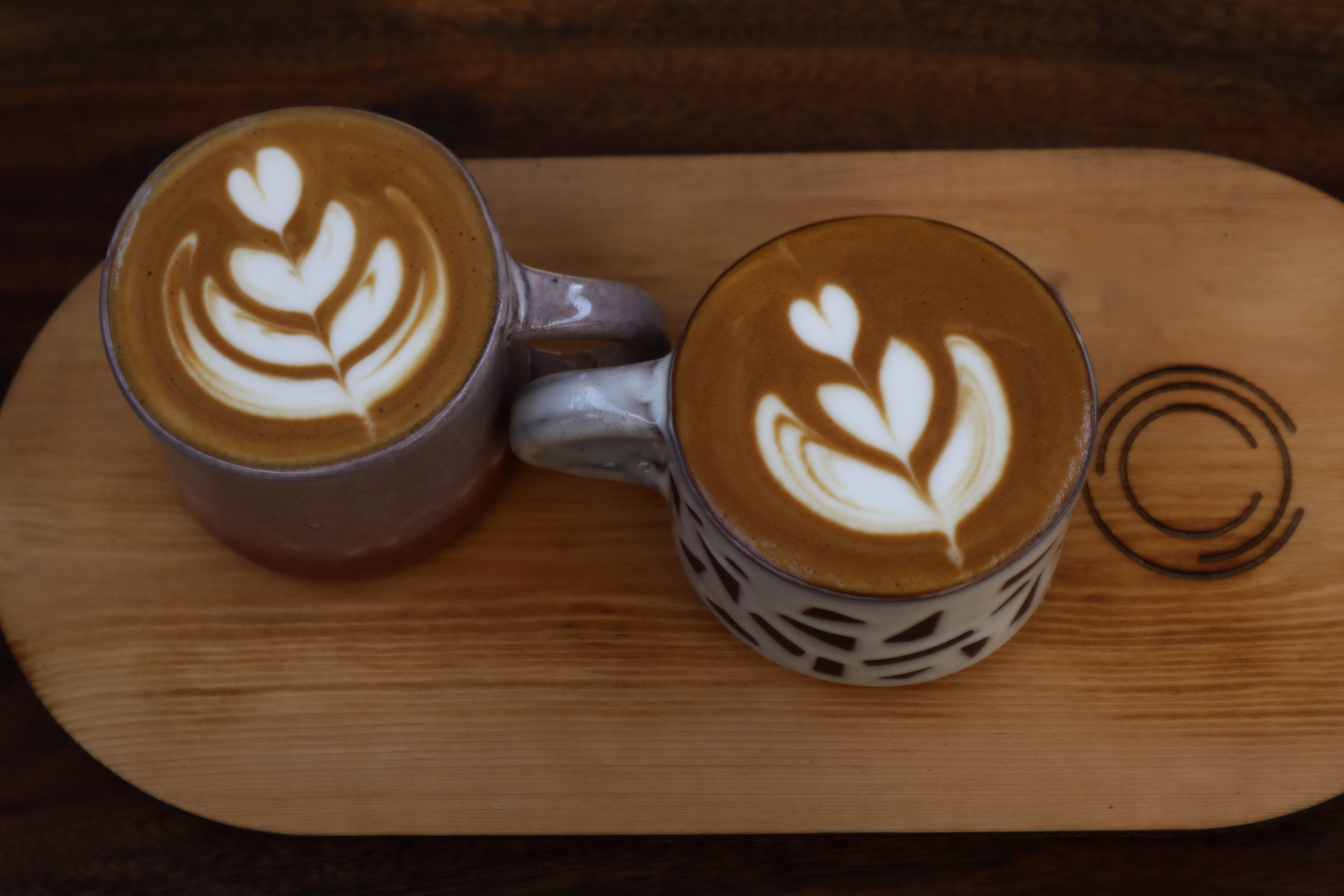
After a search that did not yield any takers, it was almost by coincidence that the Nazmis found the first business they truly clicked with. The consumer-focused style of Breadfast coffee made the owners of both Egyptian businesses feel like they had found in each other a perfect partner. From then on, more small businesses throughout Cairo began supplying their coffee from the Nazmis’ roastery.
The coffee shop, which was opened in early 2021, became their “client-facing proof of concept”, a place where they could display their different coffees, and communicate directly with the clients to help them find the right cup, or bag of beans, for them.
While their own business’s success is one goal for the Nazmis, another is simply to bring understanding of good quality coffee to Egypt. In 2021, they hosted a number of sanctioned brewing championships to put Egypt on the coffee map worldwide, and used these events to bring together as many local brewing and roasting businesses as possible.
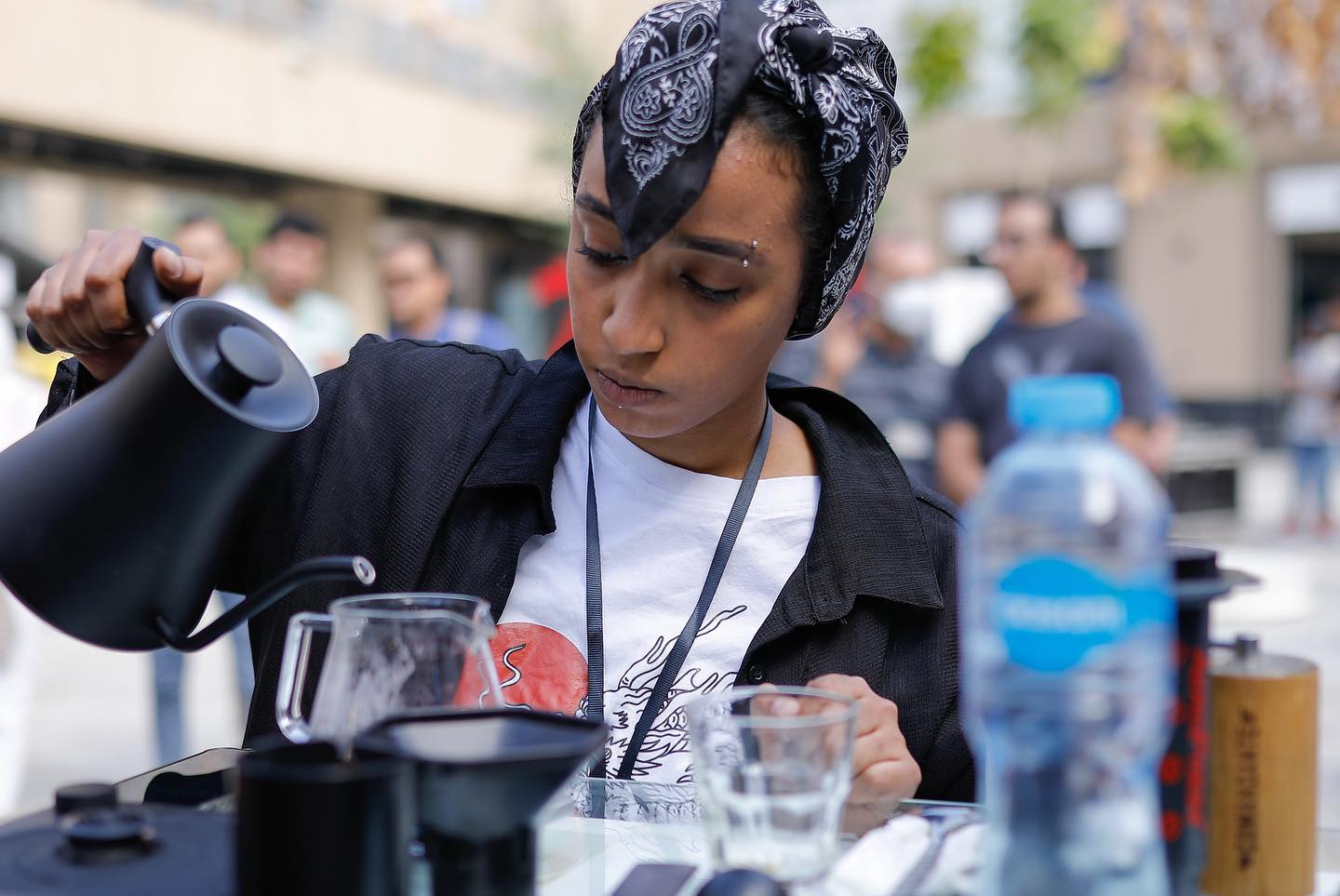
“This builds an awareness of an industry, builds a culture around it, brings investors and sponsors. Through things like this, we can elevate the standard of coffee that’s served in our country.”
Nazmi does not expect the opening of Specialty Būn to single-handedly change Egypt’s relationship with coffee and put consumers entirely off mass-produced, commercial grade coffee, especially given the somewhat higher price paid for each cup. In fact, he believes that commercial coffee is “essential to the growth of the industry. People can’t go from drinking 3-in-1 packets to drinking single-origin coffee from Sidama. There has to be a stepping stone.”
“But once you’ve gone down the specialty coffee route, you will not easily go back to commercial grade coffee,” he concludes.
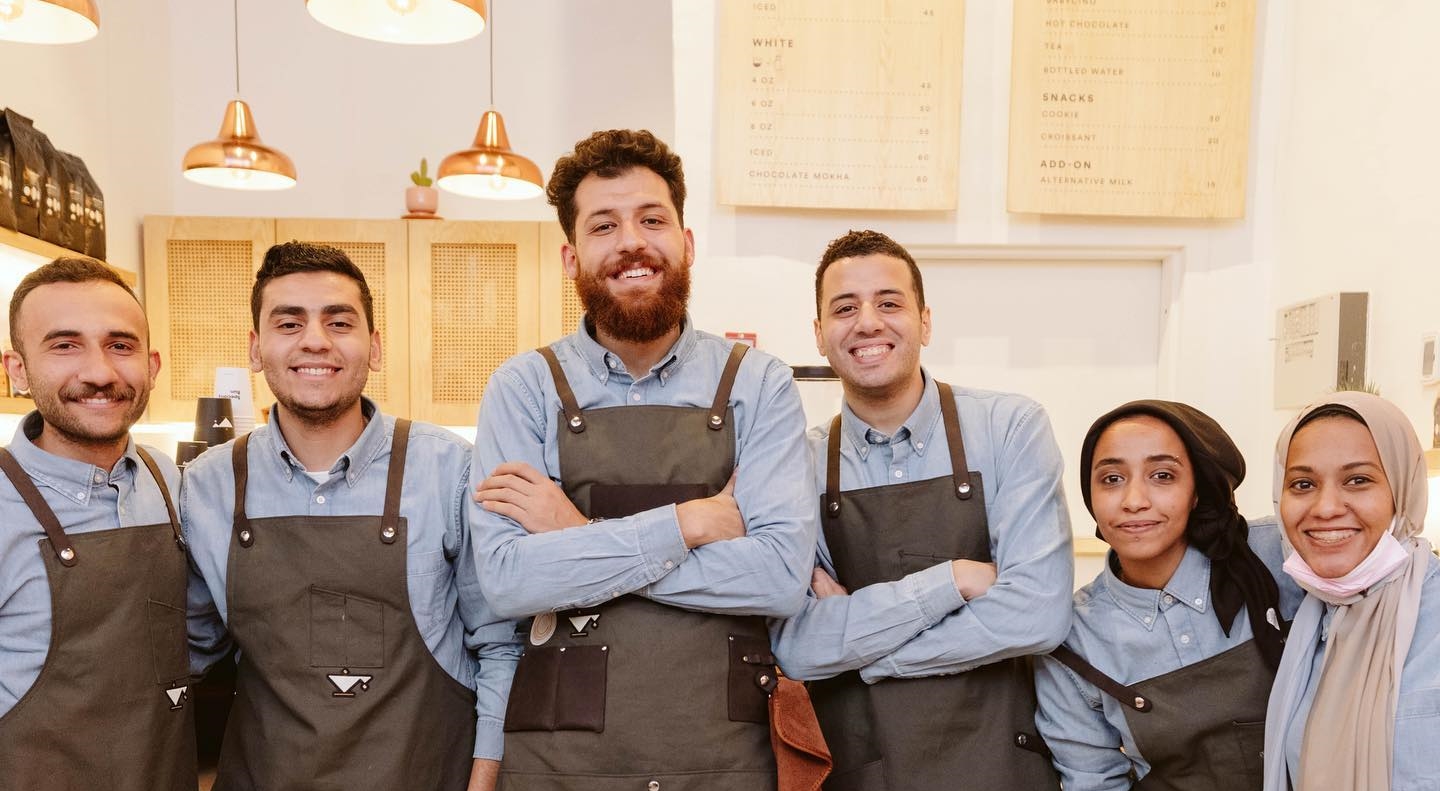



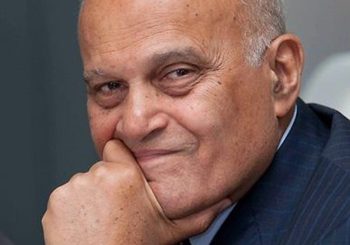

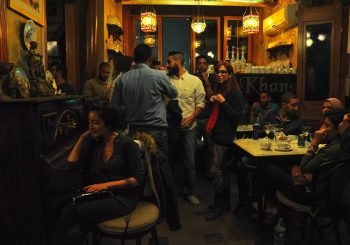
Comment (1)
[…] Specialty Būn: How Two Brothers Are Changing Egypt’s Relationship with Coffee “Diver’s Cemetery”: Dahab’s Blue Hole […]